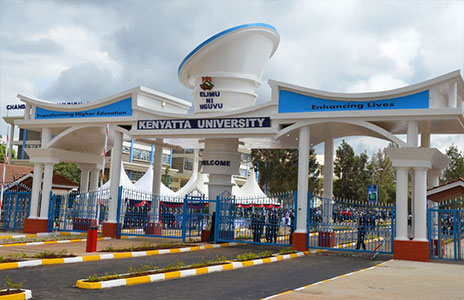
Bachelor of Science in Computer Science program is a university degree program that involves the study of computing concepts and theories, algorithmic foundations, and new developments in computing. The program prepares students to design and create algorithmically complex software and develop new and effective algorithms for solving computing problems. Computer science degree students learn the theoretical foundations of information and computation, taking a scientific and practical approach to computation and its applications.
Computer science is considered by many of its practitioners to be a foundational science that makes other knowledge and achievements possible. The study of computer science involves systematically studying methodical processes (such as algorithms) in order to aid the acquisition, representation, processing, storage, communication of, and access to information. This is done by analyzing the feasibility, structure, expression, and mechanization of these processes and how they relate to this information. In computer science, the term ?information? refers usually to information that is encoded in bits and bytes in computer memory.
Computer science incorporates a number of specialist areas underpinning the digital technologies we use every day. You will learn the main areas of the discipline, including software engineering, artificial intelligence, information security, and data analytics, as well as computer systems, databases, and networks.
A bachelor's in computer science trains undergraduates to develop computer software, write code in multiple programming languages, and solve computing problems. During a bachelor's program, students can specialize in areas like data analytics, software engineering, and information security.
In a nutshell, computer science degrees deal with the theoretical foundations of information and computation, taking a scientific and practical approach to computation and its applications.
In addition to the technical knowledge needed to pursue a career as a computer scientist, you will learn about the impact of technology on individuals, organizations, and society.
A bachelor's degree in computer science meets entry-level requirements for many coding careers, including software development and information security analyst. Graduates with a computer science degree can pursue careers as computer and information research scientists, computer network architects, and computer system analysts.
If you have a lot of patience, an eye for detail, and enjoy work that requires a high level of precision, a computer science degree might be right for you.
Entry Requirements
Eligibility for consideration for admission into the degree of Bachelor of Science in Computer Science is governed by the following minimum admission requirements :
- KCSE Candidates: Candidates must have obtained a minimum grade of C+ in the following cluster subjects: Cluster 1: Mathematics, Cluster 2: Physics, Cluster 3: Second Group II or Any Group III, Cluster 4: Any Group II/Group III/Group IV/Group V
- A-Level Candidates: Candidates with 2 principal passes, one of which must be in Mathematics or Physics, and a subsidiary pass with a Credit pass in Physics at 'O' level.
- Diploma in Computer Studies: Candidates with Ordinary Diploma in Computer Studies or equivalent with, a pass at Credit level, from an institution recognized by Senate.
- Higher Diploma in Computer Studies: Candidates with Higher Diploma in Computer Studies or equivalent from an institution recognized by Senate.
- Bachelor's Degree: Candidates with a Bachelor's degree from an institution recognized by the University Senate.
Objectives of Bachelor of Science in Computer Science
The BSc Computer Science degree program provides students with in-depth knowledge and analytic skills associated with the field of IT and Computer Science. This degree program prepares students for jobs in the industry, business or government, and provides support courses for students in engineering, mathematics, and other fields requiring computing skills.
The B.S. in Computer Science students receive:
- Comprehensive understanding of design, development, testing, and documentation of a range of operating systems
- Comprehensive knowledge in database management; and programming languages
- Essential knowledge to help them in implementing the skills acquired in class into real-life situations
- An ability to apply knowledge of computing and mathematics appropriate to the program?s student outcomes and to the discipline
- Adequate skills to help them design, implement, and evaluate a computer-based system, process, component, or program to meet desired needs
- An ability to function effectively on teams to accomplish a common goal
- An understanding of professional, ethical, legal, security and social issues and responsibilities
- An ability to communicate effectively with a range of audiences
- An ability to analyze the local and global impact of computing on individuals, organizations, and society
- Recognition of the need for and an ability to engage in continuing professional development
- An ability to use current techniques, skills, and tools necessary for computing practice.
- An ability to apply mathematical foundations, algorithmic principles, and computer science theory in the modeling and design of computer-based systems in a way that demonstrates comprehension of the tradeoffs involved in design choices.
- An ability to apply design and development principles in the construction of software systems of varying complexity.
Upon successful completion of a BSc Computer Science degree program, students will be able to:
- Demonstrate proficiency in problem-solving techniques using the computer
- Demonstrate proficiency in at least two high-level programming languages and two operating systems
- Demonstrate proficiency in the analysis of complex problems and the synthesis of solutions to those problems
- Demonstrate comprehension of modern software engineering principles
- Demonstrate a breadth and depth of knowledge in the discipline of computer science
What you will study
The BSc Computer Science deepens your understanding of computer programs, computer networks and the Internet, and how they relate to the technology world. The units taught are carefully selected with the aim of preparing students to acquire skills and disciplines required for designing, writing, and modifying software components, modules, and applications that comprise software solutions.
Year 1, Semester 2
- Introduction to Computer Systems
- Introduction to Programming
- Discrete Mathematics
- Programming Lab
- Physics for Computing Systems
- Communication Skills
- Elements of Economics
Year 1, Semester 2
- Database Systems
- Data Communications
- Linear Algebra
- Object-Oriented Programming
- Data Structures and Algorithms
- Digital Electronics
- HIV/AIDS
Year 2, Semester 1
- Differential and Integral Calculus
- Systems Analysis and Design
- Computer Architecture
- Knowledge-based Systems & Programming
- Operating Systems
- Software Engineering
- Computer Networks
Year 2, Semester 2
- Probability and Statistics
- Assembly Language Programming
- Automata Theory
- Programming Project
- Web and Services Programming
- Machine Learning Algorithms & Programming
- Foundations of Human-Computer Interaction
Year 3, Semester 1
- Analysis and Design of Algorithms
- Computer Graphics
- Distributed Systems
- Intro to Organizations and Management
- Artificial Intelligence Applications
- Network Design Implementation and Management
- Innovation & Entrepreneurship
Year 3, Semester 2
- ICT Project Management
- Network and Distributed Programming
- Compiler Construction
- Embedded Systems & Mobile Programming
- Business Intelligence & Analytics
- Computer Network Security
Year 4, Semester 1
- ICTs and Society
- Information Systems and Organizations
- Emerging Technologies Bootcamps
- Distributed Databases
- Computer Games Programming
- Computer Systems Project
Year 4, Semester 2
- Computer Systems Project
- Cloud Computing and Services
- Information Systems Control Audit
- Information for Emerging Online Solutions
Related articles
-

A Guide to Civil Engineering Degree and Diploma Programs in Kenya
08-Nov-2025 -

Electrical Engineering in Kenya: A 2025 Guide for KCSE Graduates
08-Nov-2025 -

Mechanical Engineering in Kenya: A 2025 Guide for KCSE Graduates
08-Nov-2025 -

Engineering Courses in Kenya: A Guide for 2025 KCSE Graduates
08-Nov-2025 -

Education Pathways in Kenya — From Basic Education to Tertiary | College Guide
06-Nov-2025 -

The Bird and the Mirror: A Reflection on Identity, Perception, and Illusion
07-Feb-2025
Colleges offering Bachelor of Science in Computer Science

Starehe
University of Nairobi

Ruiru
Kenyatta University

Kitui West
South Eastern Kenya University

Nyeri Town
Dedan Kimathi University of Technology

Kilifi South
Pwani University

Belgut
University of Kabianga

Kirinyaga Central
Kirinyaga University

Laikipia West
Laikipia University

Likoni
Maasai Mara University

Kisumu West

